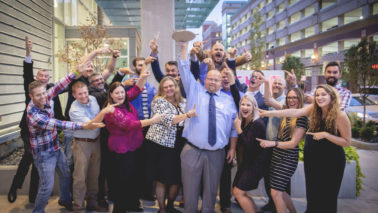May is Mental Health Awareness Month, a time to shine a light on the importance of mental health as an integral, and often overlooked, facet of one’s overall well-being. As an electrical contractor, we recognize the critical need to address mental health issues within the trades. Below is our Mental Health Toolbox talk that we're using this month across all FZ teams. Feel free to use it on your job sites this month!
Mental Health Awareness Tool Box Talk
Construction workers and culture are typically characterized by rougher exteriors and not discussing personal problems. However, recognizing our vulnerability and actively seeking help for sensitive issues, such as mental health and substance abuse, is paramount in all trades.
Cultural Change
Culture is changed by actions, and first by how we think about substance abuse and mental health.
- Perspective: Think outside of your own viewpoint. Recognize that others may have had a difficult situation on their hands, and that everyone copes with pain differently.
- Empathy: Recognize that someone may be struggling. Try to put yourself in their position.
- Judgement: Do not assume that you would handle a situation differently. You may not know your own capacity until you are forced to deal with a similar situation.
- Mindset: Think about helping a fellow worker as a way to keep the jobsite safe. Think in a helpful, positive manner, instead of a negative, hurtful one!
- Fit for Duty: A person aware of and addressing their issues is more capable of performing their work duties safely and successfully.
- Focus: Getting help can improve one’s concentration on jobsite responsibilities.
- Strength: Getting help is a sign of strength, not weakness.
Challenges to Cultural Change
Opinions about addiction and emotional issues vary from person to person. These opinions can make it harder to relate to others’ experiences or trauma. If someone shares with you, keep an open perspective and have empathy. Understanding does not mean enabling or looking the other way. It means considering that someone is in a difficult spot and helping them get out of it in a healthy way.
Avoid labelling someone as selfish. Individuals with substance abuse or mental health issues may not see the potential for injuring themselves or others.
Take Action
Change your workplace culture and mindset. Take steps to help your coworkers who may need it:
- Take the time to check in with a co-worker who may seem disturbed or know how to access a professional to intervene on their behalf
- Know who to contact in case of an urgent situation (Identify that person in your Safety meetings in the morning) If you are the one feeling an emotional burden, ask for help.
- Have resources available to give to this individual so they can seek help.
Where Can I go for Help?
Fill in with your company's information and resources (Employee Assistance Programs, Medical Insurance, Community Resources, Help Line, etc.).
Share this Blog Post
Leave a question or comment:





